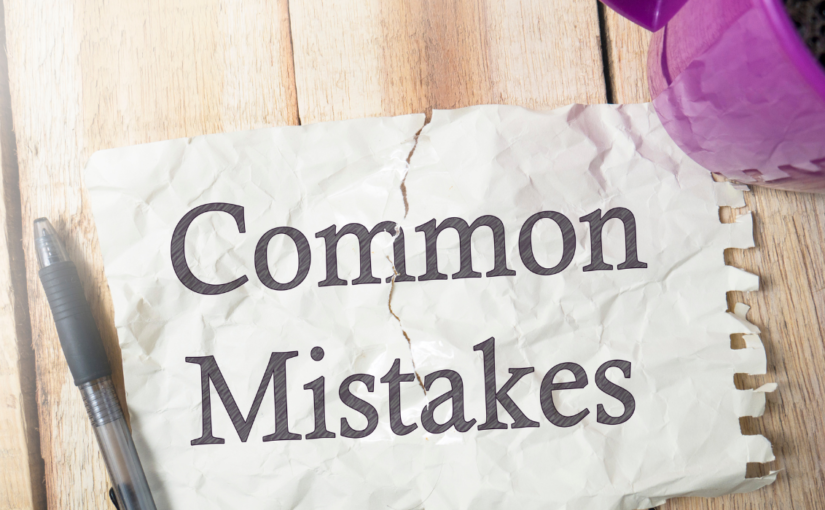back
How to Avoid Common Mistakes when Applying for an Owner-Occupied Loan
04-2023

It’s crucial to be aware of specific errors while making an owner-occupied loan application since they may result in your application being denied or unfavorable loan conditions. These are some typical errors to avoid when submitting an owner-occupied loan application, regardless of whether you are a first-time home buyer or an experienced real estate investor.
- Not Checking Your Credit Score: One of the most crucial elements that lenders take into account when determining whether to approve your loan application is your credit score. A higher interest rate or even loan refusal may be the result of having a low credit score, which can help you qualify for a reduced interest rate. It’s crucial to verify your credit score before applying for an owner-occupied loan and to take care of any mistakes or problems that could lower it.
- Not Shopping Around for the Best Rates: Never accept the first loan offer you are given. To make sure you’re getting the greatest price possible, it’s crucial to shop around and compare rates from several lenders. This can help you avoid paying too much for your mortgage and save you money over the course of the loan. When deciding on a lender, make sure to examine their rates, loan terms, and costs.
- Not Providing Accurate and Complete Documentation: You must submit a number of financial papers, like as tax returns, bank statements, and employment verification, when applying for an owner-occupied loan. It is crucial to present correct and comprehensive documentation because any discrepancies or omissions could cause the loan application process to be delayed or even rejected. Before submitting any of your papers to the lender, make sure to review it thoroughly.
- Not Understanding the Terms and Conditions of the Loan: It’s crucial to comprehend all of the terms and conditions of your owner-occupied loan before signing on the dotted line. This covers the loan’s interest rate, length, regular payments, and any extra costs. Never be afraid to ask questions or request explanation from your lender if you don’t understand something.
- Not Factoring in All of the Costs Associated with Homeownership: There are several expenses related to house ownership in addition to your mortgage payment, such as property taxes, insurance, upkeep, and repairs. When assessing how much property you can afford and whether you are financially prepared to assume the responsibility of homeownership, it’s critical to take all of these costs into account.
- Not Saving Enough for a Down Payment: An upfront payment known as a down payment is a portion of the home’s buying price. The more money you put down, the less money you’ll need to borrow, which may allow you to get a mortgage with a lower interest rate and a smaller monthly payment. Before applying for an owner-occupied loan, it’s crucial to save up enough money for a down payment because this will affect your loan’s eligibility and terms.
- Taking on Too Much Debt: When considering whether to approve your loan application, lenders take into account a number of critical factors, including your debt-to-income ratio. Your ability to qualify for a loan may be impacted by this ratio, which contrasts your monthly debt payments to your monthly income. Before requesting an owner-occupied loan, it’s crucial to avoid taking on excessive debt, such as credit card debt or auto loans.
- Not Seeking Professional Advice: Real estate agents, mortgage brokers, and financial consultants are just a few of the experts who may guide you through the complicated process of purchasing a property. When submitting an owner-occupied loan application, it’s crucial to get professional counsel. These experts can offer insightful information that will enable you to make well-informed decisions.
- Not Being Prepared for Unexpected Expenses: No matter how carefully you prepare, buying a property can result in unforeseen costs. A contingency fund should be set up to pay for any unforeseen costs that might occur, such a broken water heater or a leaky roof. By doing this, you can save financial stress and guarantee that you can make your mortgage payments on time.
- Focusing Only on the Short-Term: Consider both the immediate and long-term effects of your choice before submitting an owner-occupied loan application. Although while a reduced interest rate could appear alluring in the near term, it’s crucial to think about how the loan will affect your finances throughout its whole life. This entails taking into account the loan’s entire cost, its tenure, and how it will affect your overall financial objectives.
In conclusion, submitting an owner-occupied loan application needs thorough preparation and close attention to detail. You may improve your chances of getting a loan authorized and getting good loan conditions by avoiding these frequent blunders. Do your homework, get competent guidance, and be ready for any unforeseen costs that come with home ownership. You may effectively navigate the loan application process and accomplish your goal of becoming a homeowner with the appropriate planning and direction.
F2H Capital Group is a debt advisory firm specializing in negotiating the best terms for your commercial real estate projects. The company offers a range of financial products and services, including fixed loans, bridge loans, and construction loans across all asset types. Please contact us for any of your financing needs.

